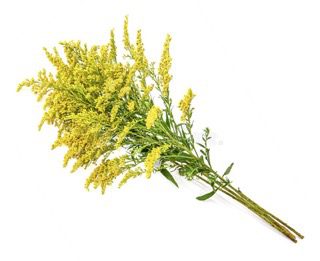

Goldenrod is a safe and beneficial plant for dogs. It can aid digestion, promote good kidney health, and prevent infections. However, some dogs with ragweed or marigold allergies may also be allergic to goldenrod pollen.
Goldenrod is rich in antioxidants that prevent cell damage caused by toxins and free radicals. It can also treat kidney stones and urinary tract infections by acting as a diuretic that flushes out toxins. Additionally, goldenrod has antiseptic and antimicrobial properties that protect against infections and inflammation
Dogs with ragweed or marigold allergies may experience allergic reactions to goldenrod pollen. The leaves of the plant contain latex that can cause allergies or irritation in some dogs.
Fresh goldenrod leaves can be added to a dog’s food in moderation. Boiling the plant in hot water and adding the brew to food or water is another option. Goldenrod supplements formulated for dogs are available in tincture and dried powder form, and it is important to follow recommended dosages. Always consult with a veterinarian before using a plant medicinally for your dog.
Goldenrod is a flowering plant that is safe for dogs to consume in moderate amounts. It is rich in antioxidants and has anti-inflammatory properties that can help with joint pain and allergies. Goldenrod tea can also be used as a natural remedy for urinary tract infections in dogs. However, it is important to note that excessive consumption of goldenrod can lead to digestive issues such as vomiting and diarrhea.
In extreme cases where a dog has consumed a large amount of goldenrod, it is important to seek veterinary attention immediately. The vet may induce vomiting or administer activated charcoal to help absorb any toxins. It is also important to ensure that your dog has access to plenty of fresh water to help flush out any toxins.